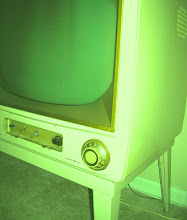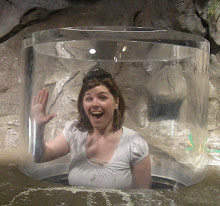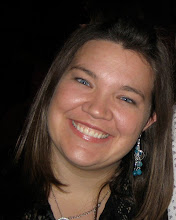
Well tonight (or tomorrow morning for those of us across the pond) is it: the end of Lost. The end of polar bears and time travel (on the same island), and an end to a particular-type of WTF moments. For me personally, so much has changed in the 5.5 years since lost debuted in 2004, it is amazing to think that I went from De Soto, MO to Leavenworth, KS, to Kingston, Jamaica, and London, England. From Cingular, to Saint Mary, to Big Brothers Big Sisters, to UTech & Roehampton, Starbucks, and the National Union of Students. Wow. Lost has truly been my 'constant' for a whole lot of change and jumping around the world (and even and island or two). It's the one show that I never miss, that I have to see as soon as I can. I'm probably more than just a little unreasonably sad about it ending, but when a show has been with you for all that change, when it's helped me make new friends, and when I've spent some great evenings watching it with old ones, it's sad to see it go.
I have high hopes for the finale, that in the end it will be fantastic and fun and yes, I really hope we'll get some answers (they really need to mention Walt). I know they can't possibly answer everything I want, but if it's done well, that's okay. So, instead of focussing on what they better show me, I just want to briefly reflect on what they already have, in my favorite epsiodes.
1) Walkabout--I've mentioned in on the blog before, but the episode where we learn that John Locke was a wheelchair user before they crashed on the island, was the first big moment of Lost for me. It also showed us a powerful and confident Locke on the island, my first favorite character. It was this episode that the flashback device was really used well, and brought suspense.
2) Flashes Before Your Eyes--My current favourite character is Desmond, something that started in this episode. He gets drunk with Charlie and Hurley and tells them what happened when he turned the key and the hatch imploded. It was our first taste of time travel, we met Eloise Hawking for the first time, and we get a hint of the growing importance of Desmond.
3) Greatest Hits--I loved the Desmond and Charlie interactions, and how hard Desmond fought to save Charlie's life. When Charlie finally comes to the realisation that his time is over, he is given once last episode. This one uses the flashback device to show what Charlie considers his 'Greatest Hits.' They are: learning to swim, saving a woman's life (who happened to be Sayid's Nadia), hearing "She's all everybody' for the first time on the radio, getting, his brother giving him a family ring, and meeting Claire. It was a sweet and poignant good-bye, and although Charlie didn't die until the season finale a few episodes later (remember, Not Penny's Boat), it was the perfect ending to a loved character.
4) The Constant--This is my all time favourite episode, and if you have noticed a theme, you will now: this is the one where Desmond keeps switching consciousnesses between the present and the past. If he doesn't find someone to be his 'constant,' someone to anchor him to a reality, he will die. Well, he realises that Penny must be his constant, and the ending where he calls her (like he told her he would) is one of the sweetest endings endings to an episode ever.
So that's it. All that's left is to watch and enjoy and say good bye!



